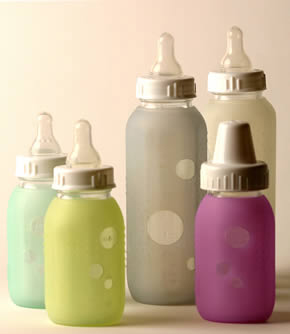Expert Panel Disagree with FDA on BPA

An independent panel of scientific advisers has said in a report that the Food and Drug Administration's assurances of the chemical Bisphenol-A, or BPA being safe, aren’t supported by available data and science.
First synthesized in 1891 and used to make plastic for food packaging, baby bottles and other consumer and medical goods BPA has been cited as being responsible for developmental problems in infants, which the FDA has refuted.
FDA report in August said BPA was safe at the current levels and this prompted lawmakers and scientists to criticize the FDA for overlooking the 100 studies that had shown BPA’s harmful effects. A committee of scientific experts has been selected by the FDA to review the report and the committee is to present its report on Friday.
The report said, "The margins of safety defined by FDA as 'adequate' are, in fact, inadequate." It added that in its report it "disagrees" with the FDA's decision to dismiss many other studies on BPA. "The Subcommittee finds that the draft assessment conclusions are not supported by the available data and science."
Rep. Rosa DeLauro, D-Conn., who chairs a committee that oversees the agency's budget said, "Despite the concerns about their objectivity, (the panel) agreed with the many independent scientists that questioned FDA's initial assessment on BPA. The report "is reinforcing the position that the FDA should restart the BPA evaluation process. There appears to be a complete undermining at FDA on the BPA issue."
Diana Zuckerman, consumer activist and president of the National Research Center for Women & Families said, "The panel was very clear, but we don't know if the FDA is going to listen. If they do, it could be a couple of years before they do anything. "
The panel said it identified "several significant concerns" it had with the FDA's assessment that BPA is safe at current levels and added that the studies dismissed by the FDA "raise additional and unsettling concern about potential effects from exposure to BPA." They concluded to say that the FDA’s margin of safety for BPA was too generous.
The FDA said it relied on industry studies for BPA as they follow strict guidelines and let the agency form its independent conclusions. The chemical industry has requested the FDA to try to expedite its final decision on BPA.
The American Chemistry Council said in a statement, "If the agency determines that existing margins of safety are insufficient in infant (products), our member companies that manufacture BPA will put processes in place to promptly phase out the use of materials containing BPA in baby bottles and infant formula packaging."
Image Source: naturemoms.com